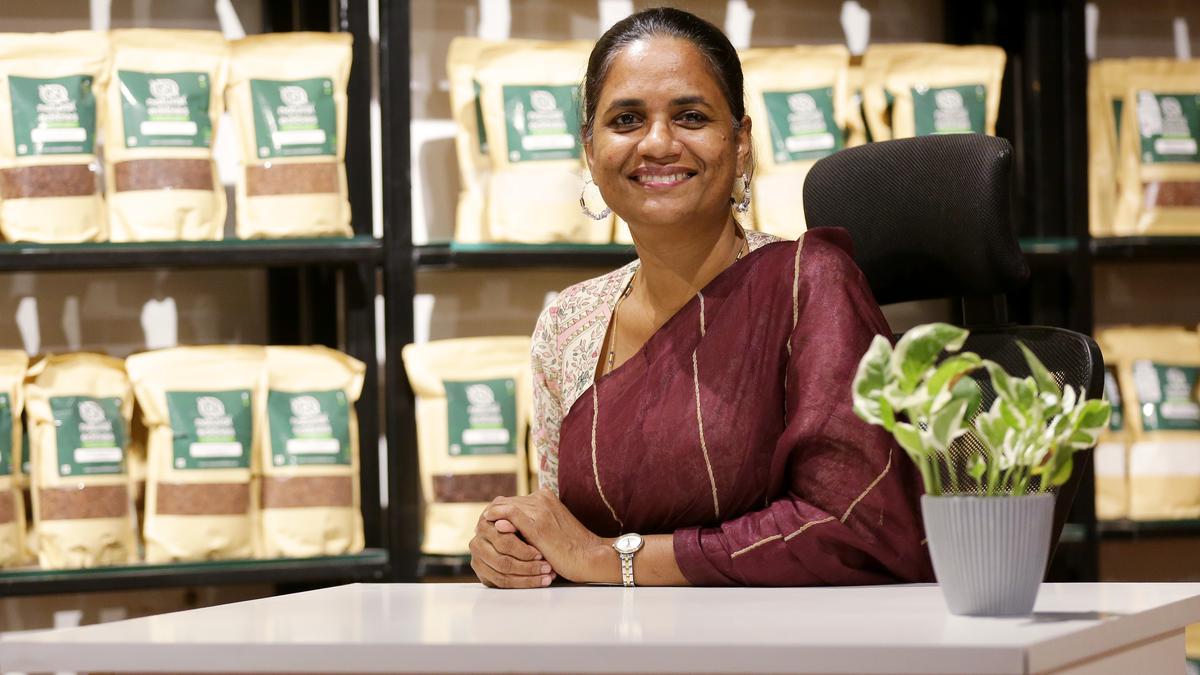
This store in Kochi stocks 35 varieties of rice
The Hindu
Natural Edibles offers 30+ varieties of organic rice and other natural produce, promoting conscious and healthy eating.
Kodukanni, rakthasali, black rice, navara, mullan kaima, valichoori, poongar, jeerakalasala, karumkuravu, palthondi, ilipaipoosamba, chomala...are a handful among 30-odd varieties of rice available at Natural Edibles, a store that sells organic, naturally farmed produce at Jawaharlal Nehru Stadium, Kaloor. Biji Hilal, the brain behind the store, says she wants to create awareness about rice — varieties and their health benefits. “When people come to the store, it starts a conversation, and it makes people aware that rice is not the villain it is being made out to be. And by that I mean rice which has not been ‘chemically treated’ to appear a certain way.”
The rice varieties have been sourced from Wayanad and Palakkad in Kerala, besides Tamil Nadu and Andhra Pradesh. The store stocks, besides rice, rice powder (puttu) and flakes, grains, vegetables, spices and condiments, oil — coconut and sesame, ghee and pollen honey. The store stocks 30-odd varieties of rice. “I do not always have these many varieties in stock because these are not cultivated in huge quantities, and are subject to availability,” says Biji.
“Almost all the processes of treating grains such as cleaning, milling, pounding, sieving, for example, are all done by hand at our unit in Puthusserry, Palakkad. The only mechanical process is ‘de-stoning’.” Biji sources the merchandise directly from farmers and farmers’ collectives. “These are people whose farms I have visited and ensured that they practise natural farming. That is they have indigenous cattle. A no-residue certification is given to farmers in Tamil Nadu who were into chemical farming earlier but converted to natural farming.”
Set up in February in 2022, Natural Edibles is Biji’s way of creating awareness of conscious and healthy eating. “Food is, after all, one of the important components of health.” Through her store, she also wants to encourage farmers to continue natural farming by helping market their produce and generating demand.
The Kottayam native’s first exposure to farming was at her husband, KM Hilal’s cabbage farm in Munnar in 1999. “He was practising chemical farming at the time. The amounts of chemical fertilisers and pesticides used was a revelation. You couldn’t just spray pesticide on the cabbage field. Each cabbage had to be literally dunked in it.” They suffered losses for not doing that. For Biji, a diploma holder in Commercial Practice, it was an eyeopener.
Once they had children, they became more conscious about the chemicals in agricultural produce and the food they consumed. It was a trigger for the couple toward exploring farming. The first step was farming for the family, which they started with vegetables. At the time the concept of ‘pesticide/fertiliser free’ produce was in its nascence, people were not as aware as today about the harmful effects of these, she adds.
An opportunity to attend a workshop on natural farming in Palakkad by Padma-awardee Subhash Palekar, the father of the ‘natural farming method’ in India opened their eyes to that method. A key element of natural farming is the use of cow dung and urine as was the practice in the past. Inspired, in 2009, they leased land in Palakkad and started paddy cultivation.

 Run 3 Space | Play Space Running Game
Run 3 Space | Play Space Running Game
 Traffic Jam 3D | Online Racing Game
Traffic Jam 3D | Online Racing Game
 Duck Hunt | Play Old Classic Game
Duck Hunt | Play Old Classic Game

















